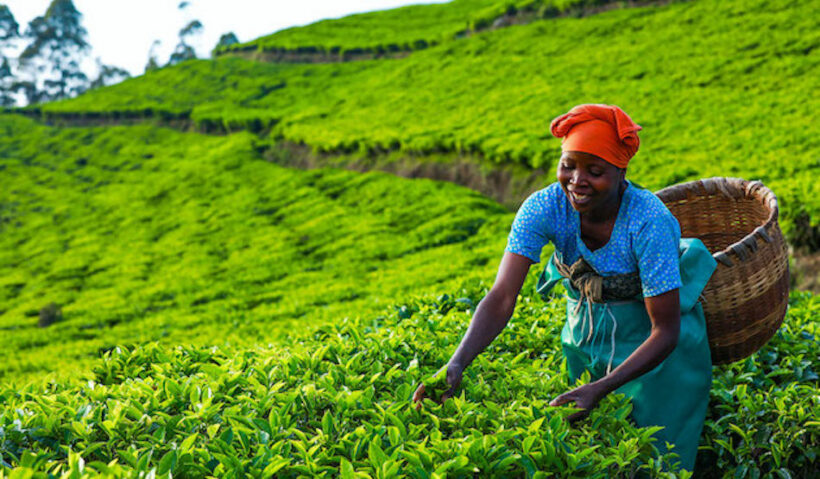Adeline Umukunzi, a 28-year-old mushroom farmer from Musanze, a district about 100 kilometres north of the capital, Kigali, is convinced that women have often been the invisible faces of agribusiness in Rwanda.
By Aimable Twahirwa
“Women have always played a vital role in agriculture, but behind the scenes. We are starting to see more and more female faces in agribusiness,” she told IPS.
While developing high-potential, locally adapted innovations in mushroom cultivation, the young woman grower was unaware of how much her products were worth in the market. Little did she know that a local food company had bought most of her production to process mushroom-based biscuits and nuggets.
As part of efforts to transform Rwandan agriculture to improve the competitiveness of agribusiness, a growing number of women are now engaged in agribusiness, where many have been able to generate entrepreneurial profits along the entire value chain.
Official estimates show that more women than men are primarily engaged in agriculture in Rwanda, although in this East African country, women producers face more challenges than their male counterparts in launching successful agribusinesses.
Despite these challenges, recent official trends show that African women are moving away from traditional ways of engaging in agribusiness and embracing the intellectual property (IP) approach to transforming the continent’s food systems.
According to experts, the adoption of IP in agribusiness aims to protect goods or services produced in the sector. This mainly concerns trade secrets, described as an essential component for companies to protect confidential information that gives them a competitive advantage.
According to Olivier Kamana, permanent secretary at Rwanda’s Ministry of Agriculture and Animal Resources, the adoption of IP rights allows innovators to generate good profits.
Kamana told IPS that Africa’s leading agribusinesses could develop commercially viable products, which is why there needs to be some form of IP protection to incentivise the innovator.
In many African countries such as Rwanda, where agriculture is the backbone of the economy, experts stress the need to harness women’s talents, problem-solving skills and innovation.
Estimates by the Food and Agriculture Organisation of the United Nations (FAO) indicate that about 62% of African women are engaged in agriculture and do most of the work in food production, processing and marketing.
Agricultural specialists recall that business competitiveness in the intra-African trade space, offered by the African Continental Free Trade Agreement, requires agribusiness actors to operate more efficiently, which requires investments in new technologies, new ways of fertilising and irrigating crops, and new ways of connecting to the global market.
For Kamana, African women agribusinesses have access to the kind of innovations they need to overcome the unique challenges they face.
During the first African Regional Conference on Intellectual Property for Women in Agribusiness, which took place in Kigali in May, participants expressed their desire to promote innovations in women-led agribusinesses in Africa by helping them understand and use IP to get their ideas out to the world.
Bemanya Twebaze, director general of the African Regional Intellectual Property Organisation (ARIPO), is convinced that intellectual property can be a powerful tool to empower women and ensure that they benefit from their innovations and creations in the agricultural industry.
“Policymakers should encourage and facilitate intellectual property rights for women in agriculture while providing them with legal and technical assistance to maximise their prospects for prosperity,” he said.
Agricultural scientists have made great strides in identifying actors that can be considered innovative in driving agricultural development and increasing food production in Africa, examining how intellectual property rights (IPR) could be greatly promoted on the content.
Estimates show that smallholder farmers, with a majority of women, are the most important and capable innovators in Africa, but this category of the workforce still struggles to aggregate their products to supply foreign markets.
Proponents argue that while an exclusive monopoly on invention could have an impact on agriculture in Africa, farming communities across the continent continue to have difficulty innovating by incorporating new technologies or varieties from abroad into their production systems.
After graduating from university a few years ago, Rosine Mwiseneza, a young agro-entrepreneur and manager of the Kigali-based BeeGulf company, started beekeeping with just five hives in the Rwamagana district in eastern Rwanda. Soon after, the number of hives increased to 15 and later to 25.
Mwiseneza told IPS that there were many opportunities for honey production in Rwanda, with the possibility of generating several products along the value chain without intermediaries.
Currently, Mwiseneza’s company produces soaps, candles, and glass containers made from raw beeswax, aiming to properly use intellectual property rights at the stage of this innovation process.
“We are trying to apply for a valid invention patent, and we hope to reap substantial benefits from these innovations in the near future,” he told IPS.










